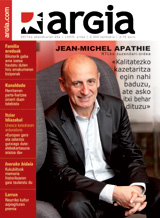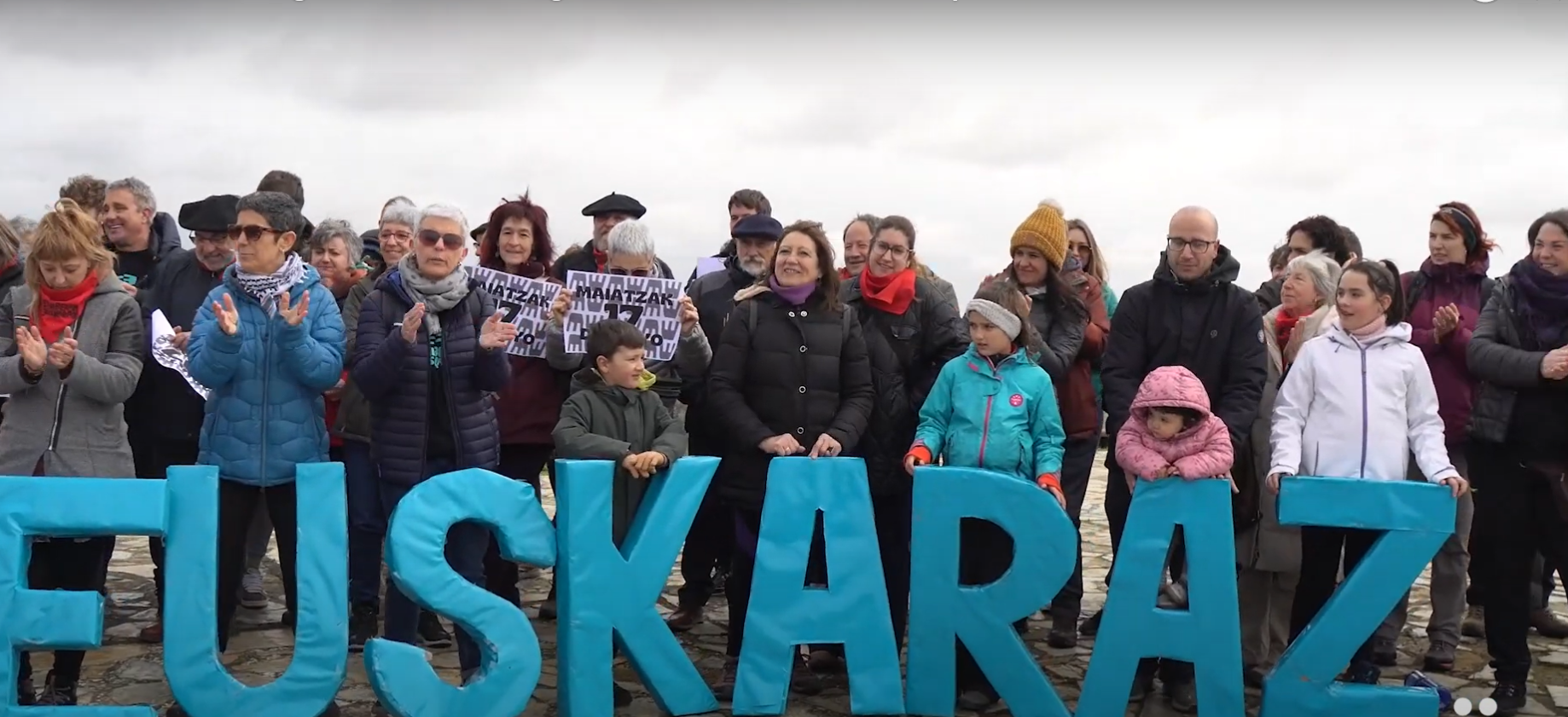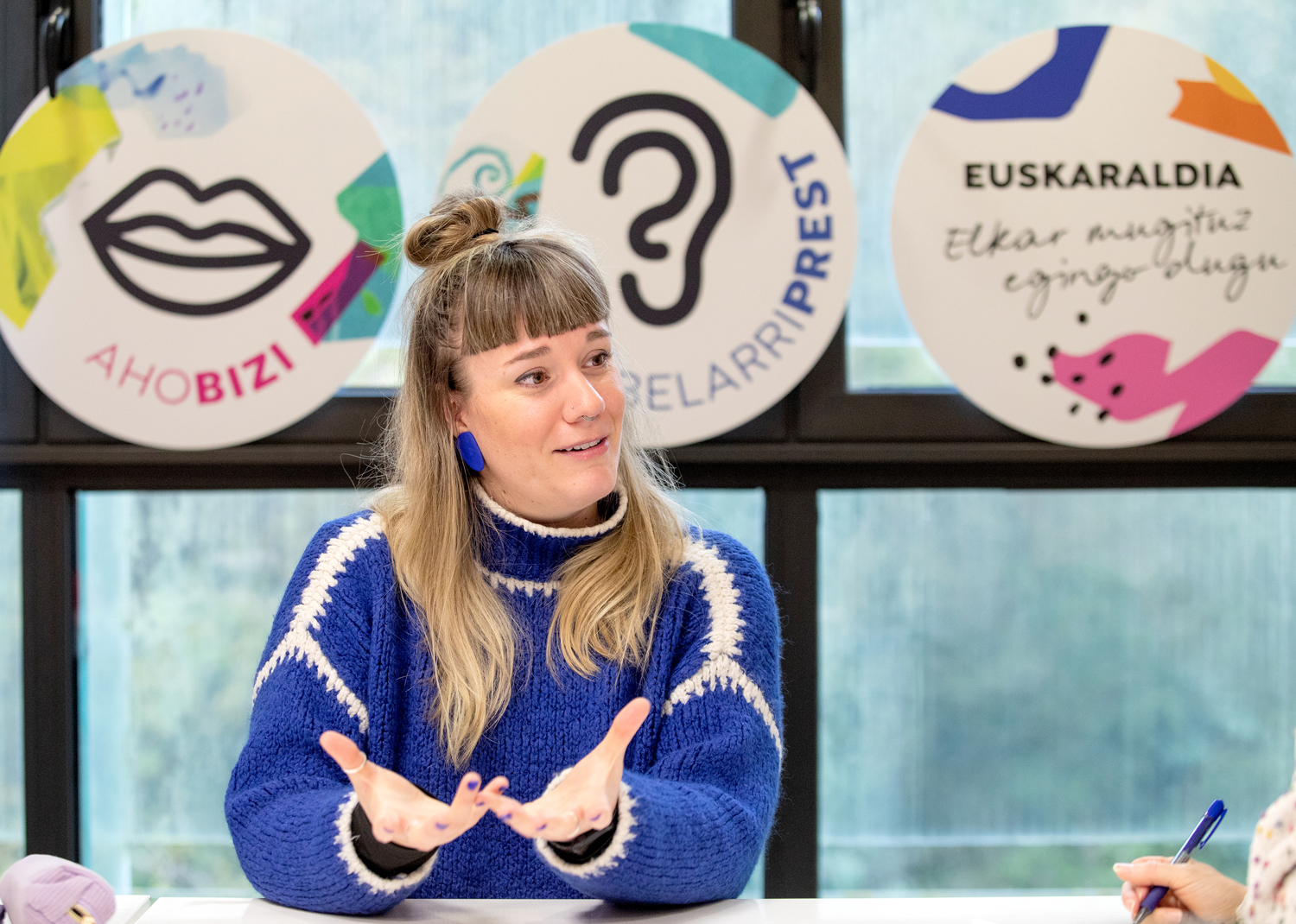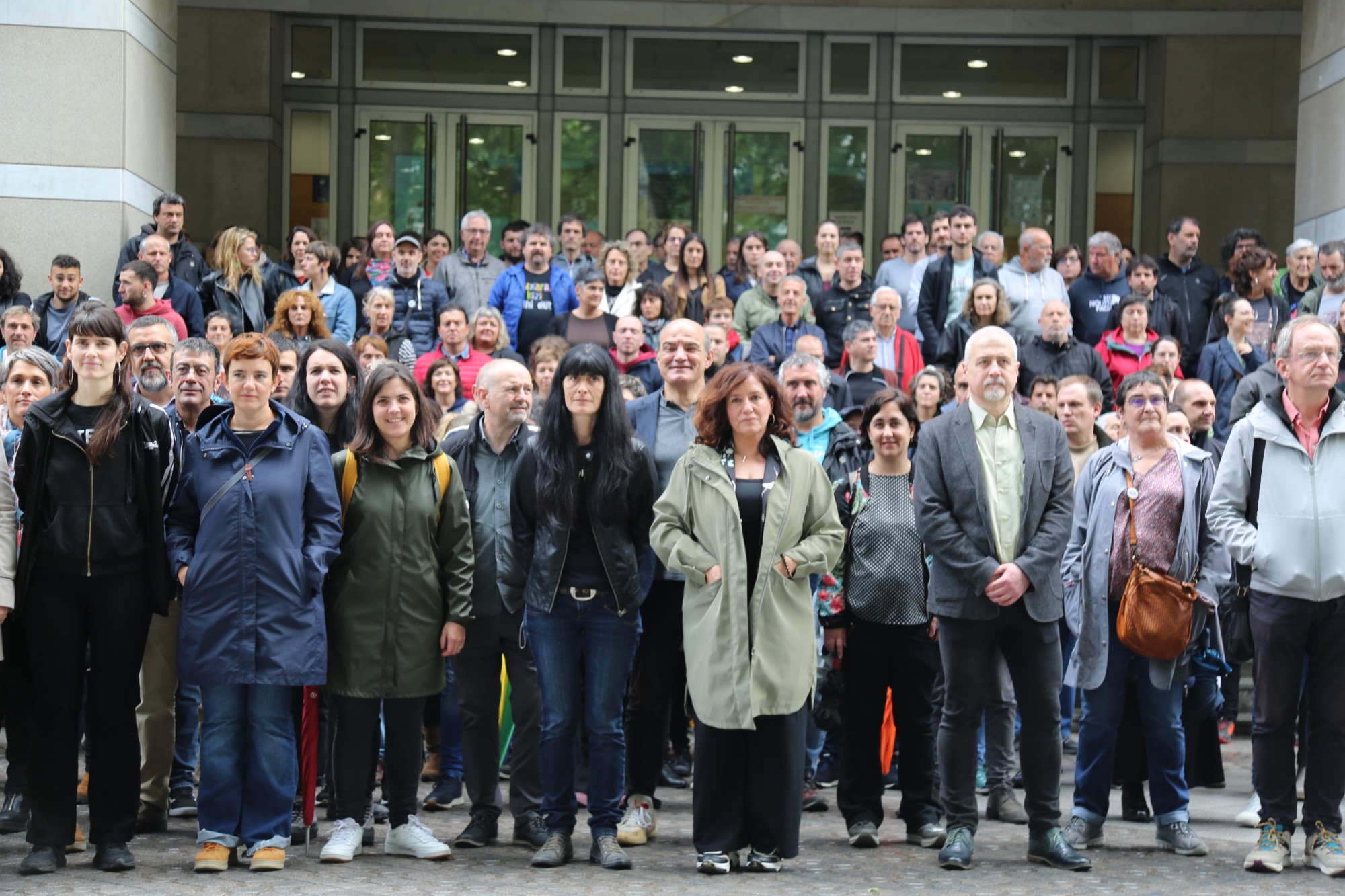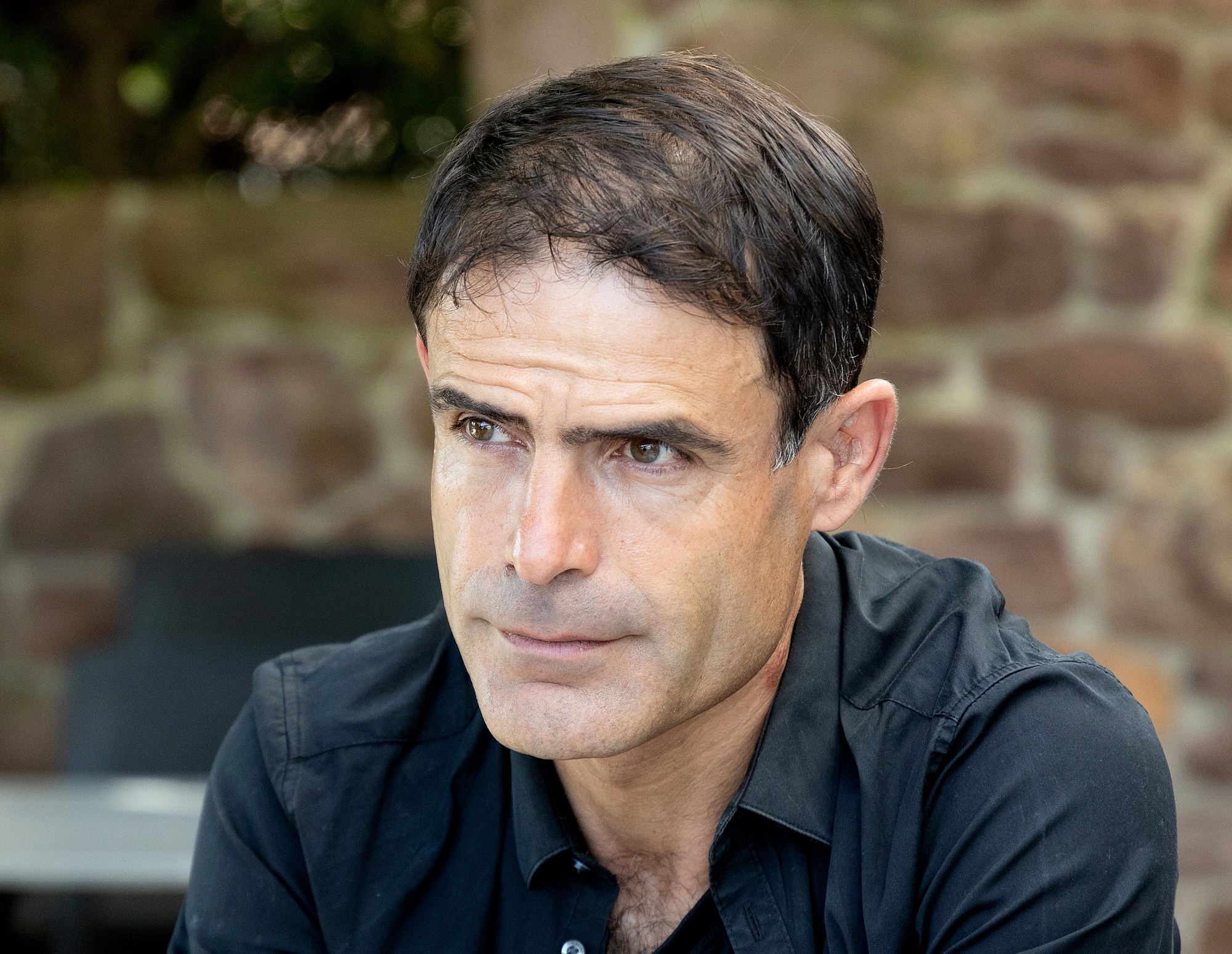"In advanced countries, education does not depend on the party's ideas of power"
- The world. Varied existing heritage. The languages spoken in it. We speak with the head of the UNESCO chair of the world's linguistic heritage, our language.
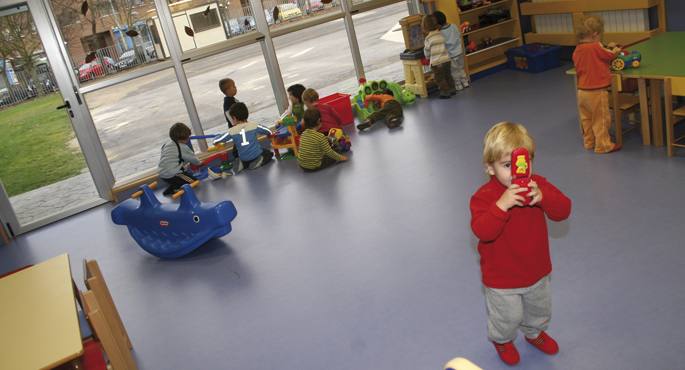
Let's read it this way. “The main objective of the Chair is to contribute to the preservation of the world’s linguistic heritage through research and awareness-raising and, above all, through international academic and institutional cooperation”. You will bring that round phrase to precision, please…
That the Chair bears the name of UNESCO means the international community, the world, and our eyes, our interests, want to have that vision. As for linguistic heritage, although it is essential to take care of the same, it does not live or develop in isolation. On the contrary, we believe that it is best achieved in interaction with others. And in that effort, fortunately, there's who to work with. In any case, we have to learn to make the effort to see the other, that awareness is not born by itself. And what needs to be investigated is a lot. For example, what others have already analyzed and taught us. And for us to see things better ourselves, we can only have one eye as sharp as possible.
As we have read, the Chair will “pay special attention to communities and institutions working on minority languages”. The Basque language is undoubtedly one of the minority languages. How does this affect our language?
Today we see the potentialities and weaknesses of the Basque Country better than 50 years ago. Although each situation is special, the experience of others is always beneficial, but of course, to the extent that it is successful in adapting to each other's perspective. For example, when in the 1970s the ikastolas started schooling in Basque the Castellanoparlantes de casa, it was not with good eyes that the mother tongue was not used in school. That was what they were about, for example, in Catalonia. We soon learned that in Canada, as in our ikastolas, and with a very special name, immersion, used as a pioneering method the schooling procedure in a language other than that of home. Why? Because they wanted to do it, and that way of doing things gave good results. Although each one has to analyze the characteristics and consequences of each decision, things are better understood when looking from more perspectives.
Immersion, at that time, not only did it not allow us to think about errors or prejudices.
Linguistic prejudices are many, and not all are appropriate in a situation like ours, that is, to help a minority language. As the experience of others and the sciences in the linguistic field move forward, our decisions can be more useful. For example, when 40 years ago, beyond “h” and “h”, we struggled with each other, we didn’t realize how sterile that discussion was.
Useless…
It is not so important for the survival of the language how the decisions of some standards for writing are made; rules are needed so that we are certain when writing, but surely the computer checker has done more to increase the written use of the Basque language than the justifications for the philological reasons of the decisions that were taken in the 1960s. However, the need to choose the standard of writing raises major concerns in minority languages. If you increase its use, you need something, a starting point, yes, but its characteristics are not so important. What's important, then? Provoke the desire, the need, the opportunity and the habit of using the language, in this case the written. The standard itself does use, it doesn't happen the other way. We know this now, because we have suffered it in our bowels – we have demonstrated it in ourselves – and this experience can also serve other linguistic communities, which are similar to ours.
What is the situation of Euskera in the international arena?
The Basque country has more to do with the situation of other minority languages in western Europe, let us say, than with those in South America. Welsh or Irish, for example, seem closer to us, because the main language and the minority belong to two very different families and the understanding between them is very difficult. But the linguistic aspects are not the most important when receiving the exhibitions. On the contrary, there are situations in minority languages that can work together. For example, we are currently working from the Chair, and in particular through a research project recently started by its members, Esti Amorrortu and Ane Ortega, are networking with researchers who analyse the minority languages of other European countries. The issue of the new minority language speakers, of the Euskaldunberris in the Basque Country, is very important. In fact, as in our environment, in other places, these languages are usually learned through school, but if you don't have life at home or in the environment, it's not easy to encourage their use. It is difficult and we are aware of it, but we are not well aware of the reasons and we do not know what the most effective solution can be.
The great presence of the Basque Country in the field of education has made you have ever underlined the path that has taken. Why has it happened in education and not in other areas? Inside, for example. Or in the area of Health.
There may be many reasons to explain this fact. On the one hand, the whole of society recognizes the centrality of the school, both before, 50 years ago, when the ikastolas began, as today. In the Chair we have analyzed the attitudes and prejudices of the Castellanospeakers about the Basque Country, and as shown in it, a very high percentage of these Castellanospeakers – around 85 – agrees that the school must make a special effort to teach the Basque Country; and I believe that the success of models B and D is a clear consequence of this opinion. It must also be said that things have been done quite well: the triple model has been a very good invention to attract people gradually, without forcing anyone; the teachers have done a very good job and the possibilities that have been given to them have also been very good. The Post-Statutory Bilingualism Act of 1983 has been carried out particularly well in the Department of Education, which I also think has to be said, and if I may, I would also like to mention someone’s name: Mikel Zalbide. Along with Mikel, her peers. We must not forget the work they have done. Although good laws are indispensable, their implementation is much more difficult. And the achievements of the Basque School’s Euskaldunization process have not happened by chance.
Where can the great work done in the Basque Country have equality?
I am not well aware of the ways that the teachers of Israel, Wales or New Zealand have taken to revitalise their minority language. Unfortunately, however, not many have succeeded in reviving their language in the world. However, without forgetting that the loss of linguistic diversity is enormous, there are linguistic communities that have managed, surprisingly, to maintain their language. For example, the pataxos of Brazil, the nonuyas of Colombia, the ikutarras, the wayus, the ganbians or some Mayan Mexican or Guatemalan speaking communities. But we don't know, or we know very little, what makes the human community keep its language.
We are always talking, “Euskera has done a lot, we have made progress, there is still a lot left, we have a half full bottle, half empty…”. What perspective should we use to assess the current situation in the Basque Country?
I am in favour of a positive approach. But I'm not naive. I believe that accepting what has been done and being proud of it helps more to continue in action than the demands of the disaster. We know that minority language does not allow us to forget the awareness of its minority status. We cannot do what we find easier, calmly, and it is. When you say normal and natural, I don't know very well what you mean. Nor do I know how the new generations see this issue. But I have no regrets about what we have done, and it is clear to me that, for posterity, it does not seem to me to be a bad inheritance than this aspect of our life, that is, that of knowing and making our language and identity respected.
Being monolingual today is a very small thing. The bilingual Basque is surrounded by monolingual Castellanospeakers. Had I seen one eye on another's head, I hadn't seen one in the head?
Being monolingual is a big problem today. For themselves and for others. The point is that this matter has been mentioned on a few occasions, or rather, we have been given a clear example of the opposite. The normal, the right, the healthy, is being monolingual. Bilingualism has been sold as a problem, especially when one of the languages has been mined. Monolingualism… I believe that in Europe there is less and less doubt about this issue, that is, it is increasingly evident that monolingualism is a problem. Once and for all, the speakers of the great languages, who believed that with their language they could live peacefully around the world, have begun to realize that they too have something to learn in relation to language. The transformation into bilingual or, better yet, multilingual is an essential challenge for the individual and the school. And by making an effort to look at things with optimism, I think it will be the economy – the world of work – that will increasingly highlight this demand for bilingualism and/or multilingualism. It cannot be a mere ethical or academic requirement.
What do we have immigrants in the Basque people? What is your tendency, your attitude, your knowledge?
Migrants, as usual, need to adapt to where they go. Human beings have the ability to adapt to meet their own needs, whether economic or otherwise. What to see… If things are left in their own good – or perhaps in their “evil” – in many places immigrants will not easily see that we are in the people of Euskera. We need more accurate data to know what happens to Euskera among the immigrant elderly. Their children, on the contrary, seem to respond well depending on their environment or the effort of the school. What we've seen with a very small sample would be significant. Students between the ages of 5 and 11 from the School of Segura (Gipuzkoa), in two years speak in Basque almost like those here. At least we know that. It is therefore possible to learn Basque even if not Nazca. We also know – if in our diversity we have the ability to stick with it as an enriching one – that, instead of marginalising or hiding immigrants, letting them know their character and considering them, we will have a better chance of living together more richly. In school there are many efforts and the sessions that are being developed, and if at other levels also means are put in place, surely the achievements will also come. It seems that the shortage of Euskera can also be attracted more easily. Apparently, if both are seen as enriching each other, better results are obtained in terms of human integration than in the path the great makes by engulfing the small. But this is another challenge for the Basque people, for the school and for the whole of society.
Despite underlining the great work that has been done in education, you have doubts about the new proposal for trilingual education.
Not taking sufficient account of the path taken, proposing things not as new as innovation without self-evaluation, raising the three words as equals in trilingualism, acting as if everything was done around the Basque country, wanting to focus efforts on the unnecessary or insufficiently studied and unjustified ... I am afraid. I believe that one thing is said and the other is done, that the experience we have has not been sufficiently taken into account. A triple model – I am referring to the three models – without evaluating sufficiently, or without taking into account their good results, a blurred single model, a model without concrete objectives… I believe that the way is being opened up to something that allows anybody to do what they want. And I fear that what has cost so much, what has been exemplary all over the world, is dissolved, melts. I have already said before, things have been done quite well in the Basque school, but there is much to be improved. Of course, we have long realised that multilingualism and English are essential requirements. But to achieve this, concrete objectives, appropriate means and research, including evaluation, are mandatory.
The model system so far…
To say that the system of the three models is obsolete is to say nothing. If the old one adapts and gives good results, it is as useful or more than the new one. We know that education and language depend on politics, but the policies that make this effect so clear seem to us to be too brutal. In the advanced countries, especially those in northern Europe, things about education are slow and well thought out, they do not depend on the ideas of politics, or rather, on what happens in power. The results also have it, especially in language matters. I would like that maturity for us as well. To adapt things, always with clear objectives, but do not change them because “it touches” or simply because we baptize it as old.
“EHUko Munduko Hizkuntza Ondarearen UNESCO Katedra eta euskal irakaskuntza elebi/eleanitza nola lotzen diren, askotan galdetu izan diot nire buruari. Izan ere, badirudi bata gauza oso lokala dela eta bestea berriz, erabat internazionala. Kontua da UNESCOn ere hizkuntza aniztasuna lehentasun bihurtu dela azken urteetan, eta aniztasun hori formazio edo hezkuntza eleanitzarekin lotu dela. Horrelaxe formulatu dituzte berrikitan, hau da, joan den urrian egindako biltzar nagusian. Palestina onartzeaz gainera, biltzar hartan munduko hizkuntza eta kultura aniztasuna, hezkuntza sistema eleanitzak ikertzearekin eta bultzatzearekin lotzea proposatu dute. Are gehiago, eleaniztasun horretan hizkuntza gutxituen ikaskuntza integratu beharra adierazten da, baina hizkuntza horretako erkidegoentzat ez ezik, baita hizkuntza handietako komunitateentzat ere. Hizkuntza handietako hiztunek, inguruan duten hizkuntza txikietako bat edo beste ikasteko ahalegina ezinbesteko baldintza bezala ikusi da mundua jakintsuago, aberatsago eta baketsuago izango bada. Beraz, gurean ez gabiltza hain desbideratuak”.
You may not know who Donald Berwick is, or why I mention him in the title of the article. The same is true, it is evident, for most of those who are participating in the current Health Pact. They don’t know what Berwick’s Triple Objective is, much less the Quadruple... [+]
Is it important to use a language correctly? To what extent is it so necessary to master grammar or to have a broad vocabulary? I’ve always heard the importance of language, but after thinking about it, I came to a conclusion. Thinking often involves this; reaching some... [+]
Adolescents and young people, throughout their academic career, will receive guidance on everything and the profession for studies that will help them more than once. They should be offered guidance, as they are often full of doubts whenever they need to make important... [+]
Maiatzaren 17an Erriberako lehenengo Euskararen Eguna eginen da Arguedasen, sortu berri den eta eskualdeko hamaika elkarte eta eragile biltzen dituen Erriberan Euskaraz sareak antolatuta
Ansorena´tar Joseba Eneko.
Edonori orto zer den galdetuz gero, goizaldea erantzungo, D´Artagnanen mosketero laguna edo ipurtzuloa, agian. Baina orto- aurrizkiak zuzen adierazten du eta maiz erabiltzen dugu: ortodoxia, ortopedia, ortodontzia... Orduan (datorrena... [+]
We have had to endure another attack on our language by the Department of Education of the Government of Navarre; we have been forced to make an anti-Basque change in the PAI program. In recent years, by law, new Model D schools have had to introduce the PAI program and have had... [+]
"Ask for your turn and we'll join you," the willing and cheerful announcer who speaks from the studios tells the young correspondent who walks through the streets of Bilbao. The presenter immediately addressed the audience. "In the meantime, we are going to Pamplona..." They opened... [+]
Aberri Eguna elkarrekin ospatzeko xedez sortu zen Euskal Herria Batera plataforma. Aurten, ikusgarri bat eskainiko dute apirilaren 11n, Manex Fuchs antzerkilariaren, Lorea Agirre idazlearen eta Martxel Rodriguez dantzariaren eskutik.









